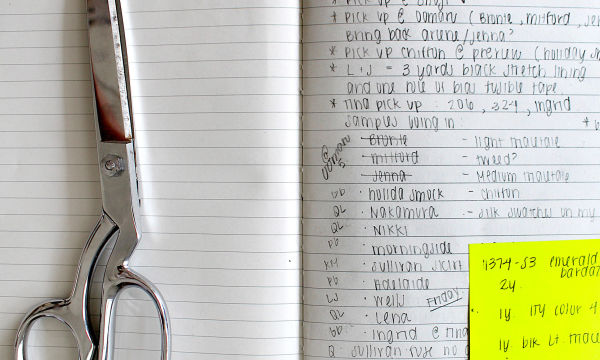
Shop This Look
The Art of Sucking At Something
In the spring of 2017, Karen Rinaldi penned an essay for The New York Times, born of personal experience and fervent belief, about the importance of sucking at something. The story quickly went viral, and a year later, Rinaldi was still receiving emails from readers. In the piece, she explained that after 15 years of surfing, she was still a total amateur, or what would be classified as a “kook” in the parlance of the sport.
Yet, despite recognizing that she had probably reached the peak of her skills on the board, she never felt that her love of surfing was misplaced or even unrequited. Falling, failing, and getting thrashed in the waves left her with a valuable realization: Being okay with sucking at something is its own kind of reward.
Rinaldi, an SVP at HarperCollins and the publisher of Harper Wave, an imprint she founded in 2012, ultimately wrote a book on the subject. It’s Great to Suck at Something: The Unexpected Joy of Wiping Out and What it Can Teach Us About Patience, Resilience, and the Stuff that Really Matters came out in May of this year, and has done its part to spur a dialog about why, as a culture, we are so obsessed with optimization that we often neglect to investigate the activities that bring us joy. If we can’t excel at something, the thinking goes, why pursue it? To quote Rinaldi’s suckitude philosophy: “The goal does not need to be perfection.” In other words: It’s okay to suck at something and still pursue it anyway.


“Without striving, we would never progress, because we would never get better at doing the things we need to do in the world that help us grow and take care of ourselves and the people around us.” However, taken to the extreme, striving can also stunt: Falling short of “perfection” feels like failure—a false binary—in a way that stops us from participating in things just for fun.
“We’ve come to a place of aspirational psychosis, where everybody is smarter and prettier and better than we are,” observes Rinaldi. Men fall prey to this problem, but for women it’s particularly insidious. “Men have an eight-lane highway, and women have a very narrow lane—there’s just more forgiveness for men who stumble, whereas women are judged for being too much or too little no matter which way we turn.”

“The way out of the bind is to give yourself freedom in something where the stakes are low, where you can learn something about yourself and not worry about whether or not you can succeed at it,” she says. For Rinaldi, that’s surfing. For someone else, there are myriad options—ping pong! Knitting! Late-in-life ballet classes!—but the purpose is to get comfortable with sucking while distracting yourself with something that makes you feel good. Aside from developing a relationship with your own vulnerability, the only goal is to do something you suck at because it makes you happy.
At a reading of her book at the surf shop Pilgrim in Brooklyn, Rinaldi emphasized that she is not just modestly pretending to be bad at surfing: “I really am bad,” she said, and her two young adult sons—surfers themselves—both nodded in a way that managed to affirm and encourage. “When I surf, people are always so stoked for me. When I catch a wave, everyone is so excited, because they know I have been working really hard at it,” she adds. But another good reason to suck at something is that it brings out the best in others: It creates an opportunity for generosity.


She used the example of seeing someone struggling with a stroller on the subway steps and offering to carry it; while that’s a slightly different shade of struggle than sucking, the idea is that receiving help is actually a generous act. “Kindness is a gift we give ourselves, but also a gift we give the giver,” she reflects. And we can’t share that gift without admitting we can’t accomplish everything by ourselves—and allowing others in.
As for committing to the thing you suck at: Yes, it can be complicated. We live in an era of declining leisure and diminished hobbies. Combine that with the pressure to seem perfect on Instagram—and then live up to those images in real life—and the idea of dedicating time, money, and energy to something that doesn’t yield acclaim, money, or measurable progress is a hard sell. “It’s perplexing for people, but that freedom you get from doing something where there isn’t a goal is the most incredible kind of freedom,” she says. “It’s what allows us to tap into the really important stuff like compassion, patience, tenacity, and getting rid of the critic in our heads.”

We all have areas of our lives where we need to be an expert, and the point is not to muck up. But another application of the gospel of sucking is to own the moments where you fail so you can recover from them faster in the future. Rinaldi gives the example of arguing with a partner—something we know is bound to happen countless times throughout a relationship, but that we can develop new tools to handle better along the way. “You have to practice being vulnerable to know that you’re not going to die from it,” says Rinaldi. Allowing ourselves to suck is part of that practice; ultimately, it can help us all find our way.








